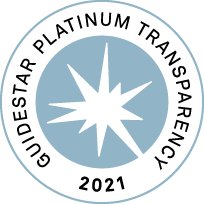WHAT MAKES THIS
FOOD SO SPECIAL?
FOOD SO SPECIAL?
OUR FOOD IS A HIGH PROTEIN,
VEGETARIAN POWER PACK OF NUTRITION.
We believe that hope for hungry children begins with our nutritious Hands Against Hunger® food, developed by food scientists and nutrition professionals to stop malnutrition.
We believe that hope for hungry children begins with our nutritious Hands Against Hunger® food, developed by food scientists and nutrition professionals to stop malnutrition.
PROTEIN
RESPONSIBLE FOR:
Growth & repair of the body; helps transport nutrients throughout the body; helps body fight infection; regulates fluid in the body; is a source of protein; and all enzymes are proteins (enzymes perform many body functions).
DEFICIENCY EFFECTS:
A disease called Kwashiorkor – severe growth retardation, loss of hair color, wounds do not heal, anemia, weakness, increased risk of infection, and can result in death.
FATS
RESPONSIBLE FOR:
Source of energy & energy stores; forms the major component of cell walls; nourishes skin & hair; insulates the body from heat & cold; and cushions the main organs of the body.
DEFICIENCY EFFECTS:
Weakness, rough skin, brittle hair, and intolerance to heat & cold.
CARBOHYDRATES
RESPONSIBLE FOR:
Provide the body with energy to perform all its functions. The brain & nervous system prefer carbohydrates for energy over protein and fats.
DEFICIENCY EFFECTS:
Weakness, fatigue, confusion, low blood sugar (hypoglycemia).
FIBER
RESPONSIBLE FOR:
Replaces calories from fat; gives a feeling of fullness; decreases the risk of colon cancer; may decrease cholesterol levels; and may improve blood sugar levels by slowing the absorption of glucose (sugar).
DEFICIENCY EFFECTS:
Can lead to appendicitis, arteriosclerosis (a type of heart disease), colon cancer, constipation, and diabetes (high blood sugar).
VITAMIN A
RESPONSIBLE FOR:
Helps in vision; growth & repair of the body; improves immunity; and helps decrease the risk of cancer.
DEFICIENCY EFFECTS:
Night blindness, rough skin, increased risk of infection, impaired bone & body growth, abnormal tooth & jaw alignment, eye problems that can lead to blindness.
VITAMIN C
RESPONSIBLE FOR:
Helps in wound healing; maintains bone & teeth; strengthens blood vessels; improves immunity; and helps the body absorb iron.
DEFICIENCY EFFECTS:
A disease called Scurvy – bleeding gums, tooth loss, and even death. Anemia, arteriosclerosis (clogged blood vessels) depression, increased infections, muscle degeneration, rough skin, weakened bones, and poor wound healing.
VITAMIN D
RESPONSIBLE FOR:
Bone & tooth formation; helps body absorb & use calcium & phosphorous that aids in bone formation.
DEFICIENCY EFFECTS:
A disease called Rickets – Soft bones, abnormal growth, joint pain, and badly formed teeth.
THIAMIN
RESPONSIBLE FOR:
Helps in the release of energy from food; supports a normal appetite; supports nervous system functions.
DEFICIENCY EFFECTS:
A disease called Beriberi – extreme loss of muscle tissue, swelling all over the body, enlargement of heart, irregular heart rate, & paralysis. Also can cause mental confusion, weakness, & impaired growth.
RIBOFLAVIN
RESPONSIBLE FOR:
Helps in the release of energy from food; promotes healthy skin and normal vision.
DEFICIENCY EFFECTS:
Vision problems, skin disorders around the nose and mouth.
VITAMIN B6
RESPONSIBLE FOR:
Helps in the release of energy from food; promotes healthy skin, nerves, and the digestive system.
DEFICIENCY EFFECTS:
Nervous disorders, skin rashes, muscle weakness, anemia, seizures, and kidney stones.
VITAMIN B12
RESPONSIBLE FOR:
Needed for protein & fat metabolism; helps in the formation of antibodies to fight infection and the formation of red blood cells.
DEFICIENCY EFFECTS:
Anemia, smooth tongue, fatigue, and nerve degeneration that can lead to paralysis.
NIACIN
RESPONSIBLE FOR:
Maintains nerve cells; helps in red blood cell production; and helps in the production of genetic material.
DEFICIENCY EFFECTS:
A disease called Pellagra- skin rash on the body where exposed to the sun, loss of appetite, dizziness, weakness, irritability, fatigue, confusion, and indigestion.
FOLATE
RESPONSIBLE FOR:
Helps in red blood cell formation, protein metabolism, and new cell division. Helps in the formation of the nervous system of developing fetuses.
DEFICIENCY EFFECTS:
Anemia, heartburn, diarrhea, smooth tongue, depression, and poor growth.
BIOTIN
RESPONSIBLE FOR:
Helps in energy metabolism, fat production, and storage of a form of sugar (glycogen) that is stored in the liver.
DEFICIENCY EFFECTS:
Loss of appetite, nausea, depression, muscle pain, weakness, fatigue, and skin rash.
IRON
RESPONSIBLE FOR:
Helps in the formation of hemoglobin (enables red blood cells to carry oxygen) and helps the body use energy from food.
DEFICIENCY EFFECTS:
Anemia, weakness, headaches, increased risk of infections, and inability to concentrate.
CALCIUM
RESPONSIBLE FOR:
Strengthens bones & teeth; helps muscles work; and helps blood clot, nerves to function, and in blood pressure function.
DEFICIENCY EFFECTS:
Stunted growth, tooth decay, and bone loss in adults.
PHOSPHORUS
RESPONSIBLE FOR:
Part of every cell in the body and helps maintain acid balance of the body.
DEFICIENCY EFFECTS:
Unknown
MAGNESIUM
RESPONSIBLE FOR:
Helps in bone formation, protein use by the body, enzyme action, muscle activity, and in nerve function.
DEFICIENCY EFFECTS:
Growth failure, delayed development, loss of taste, and poor wound healing.
ZINC
RESPONSIBLE FOR:
Part of many enzymes, present in the hormone insulin; helps in the production of proteins, boosts immunity; helps transport Vitamin A in the body; helps in would healing, taste, and normal fetal development.
DEFICIENCY EFFECTS:
A disease called Rickets – Soft bones, abnormal growth, joint pain, and badly formed teeth.
IODINE
RESPONSIBLE FOR:
Helps in thyroid function and regulation of metabolism.
DEFICIENCY EFFECTS:
A disease called Cretinism – severe physical and mental retardation, Goiter development.
COPPER
RESPONSIBLE FOR:
Helps with iron absorption, and is part of several enzymes.
DEFICIENCY EFFECTS:
Anemia and bone changes.





